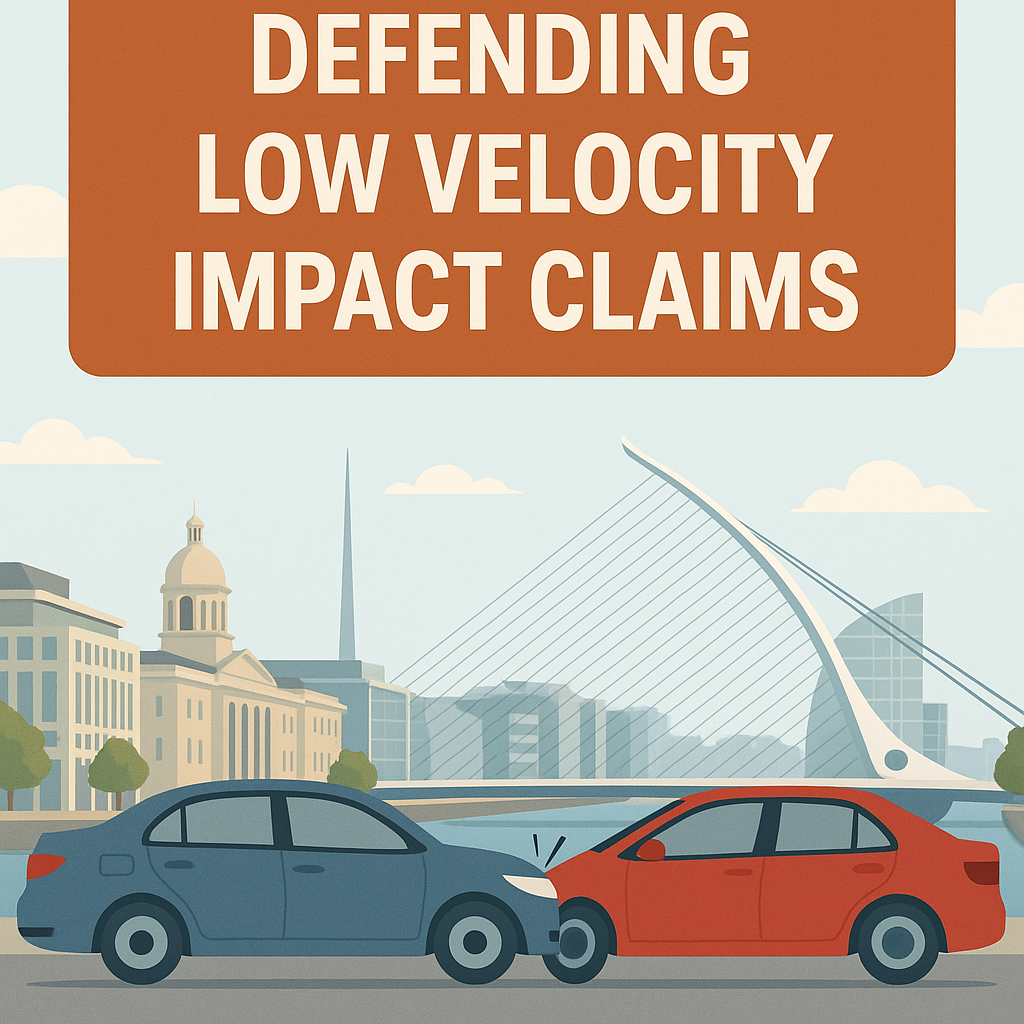After a car accident, one of the first concerns many drivers face is how to stay mobile. Credit hire services step into that gap, offering temporary replacement vehicles without upfront cost. But while this service is vital, credit hire claims after car accidents must also survive legal scrutiny.
At Lacey Solicitors, we understand that after a road traffic accident, access to a temporary replacement vehicle is often critical. Credit hire serves a legitimate need, particularly for innocent drivers who cannot afford to pay for a hire vehicle upfront. But for insurers, while the system is necessary, it must also be proportionate, evidence-based, and compliant with established legal principles.
Credit hire claims are often complex and legally contentious. Those in the trenches of credit hire litigation will often see the same core disputes surface time and time again. While each case depends on its own facts, several key issues consistently arise. These include:
- Need for hire
- Enforceability of the credit hire agreement
- Rate of hire
- Impecuniosity of the plaintiff
- Duration of hire
- General mitigation of loss
While future articles will explore enforceability of hire agreements and general mitigation arguments in more depth, this article focuses on the four most frequently contested aspects of credit hire claims: need, duration, rate, and impecuniosity.
What is Credit Hire?
Credit hire involves the provision of a like-for-like replacement vehicle by an accident management company to a non-fault driver. The cost is not paid upfront by the driver but is instead recovered from the at-fault party’s insurer.
This model has been recognised judicially as fulfilling a real societal need. In Dimond v Lovell [2000] 2 All ER 897, Lord Nicholls described credit hire as meeting a “real need” and Lord Hobhouse acknowledged its “understandable popularity.” However, their Lordships also warned that such claims must be justified under the principles of mitigation and reasonableness.
Key Legal Issues for Credit Hire Claims After Car Accidents
1. Need
A claimant must show a genuine need for a replacement vehicle. This is often the first and most fundamental issue considered in credit hire litigation.
Courts will evaluate whether:
- The claimant required a vehicle at all during the hire period
- The vehicle hired was appropriate for their circumstances
- Reasonable alternatives, such as public transport or a household vehicle, were available
Evidence such as daily mileage, access to other vehicles, work-related travel, family commitments, and geographical access to transport services is often decisive. If the need is not clearly established, the entire hire claim can collapse.
2. Duration
Even if need is proven, the length of the hire must be reasonable and justifiable.
Arguably, delays in repairs, inspections, acceptance of a pre-accident value (PAV) offer and ‘off hiring’ can undermine a claim—especially where those delays are attributable to the claimant or their representatives. The principle of mitigation of loss, as highlighted in Giles v Thompson [1994] 1 AC 142, remains crucial: claimants must take reasonable steps to keep their losses to a minimum.
If unnecessary delays occur, insurers will quite rightly look to dispute part or all of the hire duration.
3. Rate
In credit hire cases, one of the key issues often contested is the hire rate claimed. Courts generally award basic hire rates (BHR) unless the claimant can demonstrate impecuniosity—meaning they could not afford to pay for the vehicle hire upfront—in which case full credit hire rates may be allowed.
However, if the defendant does not provide evidence of BHR, courts may by default award credit hire rates even if impecuniosity is not proven. This places an important evidential burden on defendants to produce credible BHR evidence to challenge higher credit hire charges. Without such evidence, the court has limited means to assess whether the credit hire rates claimed are reasonable compared to market rates.
When courts do consider BHR, they look for the lowest reasonable rates available from mainstream or reputable local suppliers in the claimant’s geographical area. The assessment is fact-sensitive and courts generally avoid overly technical disputes about exact pricing, focusing instead on a reasonable approximation of market rates as seen in Stevens v Equity Syndicate Management Ltd [2015] EWCA Civ 93. Additionally, if credit hire agreements include extras such as “nil excess” cover that basic hire rates do not provide or provide inadequately, the court may treat these costs separately and allow appropriate adjustments. Overall, rate challenges aim to ensure claims reflect fair market costs rather than inflated charges, balancing the claimant’s legitimate needs against the defendant’s right to avoid overpayment.
Claimants are generally only entitled to recover the Basic Hire Rate (BHR) unless they can establish ‘impecuniosity.’
4. Impecuniosity
Impecuniosity, a pivotal issue in credit hire claims, refers to a claimant’s inability to afford upfront car hire charges following an accident. It forms part of the broader duty to mitigate losses—a principle that claimants must act reasonably to limit financial damage. Courts have established that where a claimant cannot afford to hire a vehicle without making unreasonable sacrifices, credit hire charges may be recoverable.
As outlined in South Eastern Health and Social Care Trust v Flannagan and Capper Trading Ltd [2015] NIQB 30, Horner J explained:
“An individual who is not penniless can still be impecunious, because as a question of priorities he is unable to pay car hire charges without making sacrifices he could not reasonably be expected to make.”
Key case law, including Lagden v O’Connor and Zurich Insurance Plc v Umerji, illustrates that impecuniosity not only impacts the rate of hire but also the duration. The burden initially lies with the claimant to prove their financial position, and once sufficient evidence is provided, the evidential burden shifts to the defendant.
The assessment of hire charges and duration differs based on whether the claimant is impecunious. If so, they may claim the full credit hire rate and extend the hire period until the defendant provides compensation for repairs or vehicle replacement. For pecunious claimants, courts consider what is reasonable under the circumstances, such as waiting for an engineer’s report or the defendant’s inspection. In cases where repairs or replacements are delayed without justification, courts assess the claimant’s efforts to mitigate losses. Ultimately, reasonable conduct, timely communication, and evidence of financial status are central to determining recoverable credit hire damages.
Courts expect robust documentary evidence—bank statements, income proof, credit history, and essential outgoings—to support any claim of impecuniosity. Vague assertions or anecdotal claims won’t meet the required threshold.
Real-World Case: High Charges, But Still Recoverable?
A recent example reported by the BBC involved a nurse who was charged £50,000 for hiring a Tesla Model 3 for over three months. While the judge acknowledged that the hire costs were three times higher than standard and the hire period 75 days longer than necessary, he still ruled that the insurer was liable for the full amount.
The reasoning was based on the fact that the claimant followed her employer’s fleet management advice and acted in good faith. While the result may appear controversial, it highlights how the factual context and procedural conduct of the parties can significantly influence judicial outcomes—even where rate and duration are contentious.
Industry Improvements for Credit Hire Claims After Car Accidents
Not all credit hire claims are problematic. In fact, recent industry data suggests that:
- Average hire durations are decreasing
- Legal costs associated with credit hire have dropped by nearly 50% since 2023
This reflects greater cooperation between insurers, defendant law firms, and accident management companies. However, careful legal oversight remains essential.
Conclusion: Necessary Service, But Not a Carte Blanche
Credit hire is necessary and beneficial—but it must be fair, reasonable, and subject to evidential and legal discipline. Defence solicitors and insurers have a duty to:
- Insist on proper proof of rate, need, and duration
- Demand full impecuniosity disclosure where higher-than-market rates are claimed
- Resist excessive or unjustified claims, while still acting proportionately and fairly
At Lacey Solicitors, we are uniquely positioned to assist clients—whether insurers, fleet managers, or individuals—with the nuances of credit hire claims after car accidents. With a deep understanding of both claimant and defence perspectives, we provide balanced, evidence-based legal strategies in this ever-evolving area of personal injury law.
📞 Need advice or representation in a credit hire dispute? Contact Lacey Solicitors today.
















